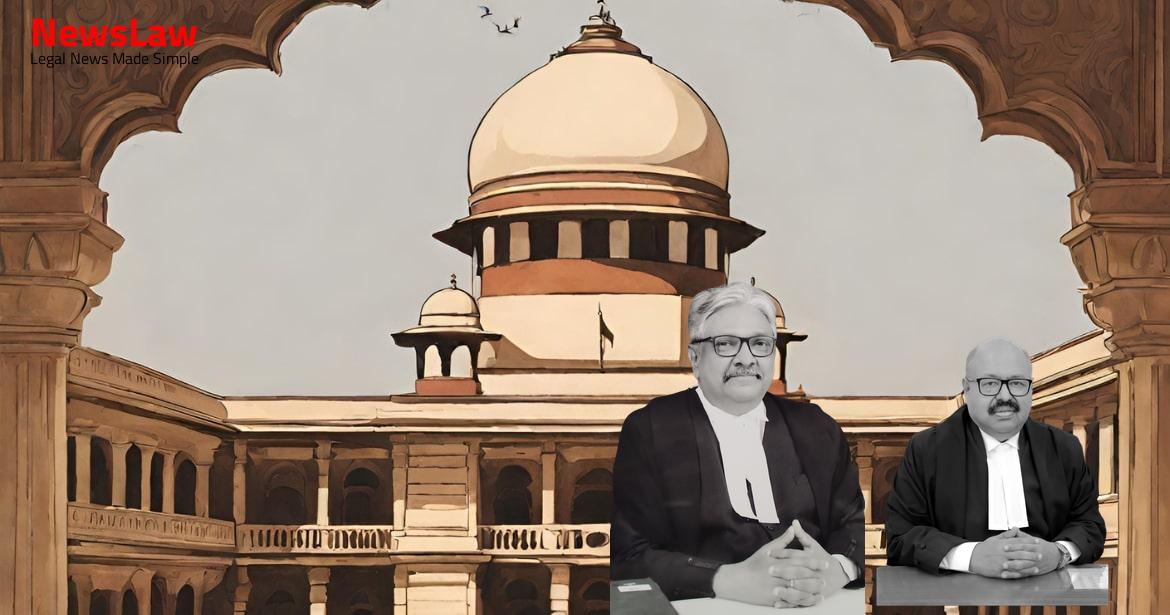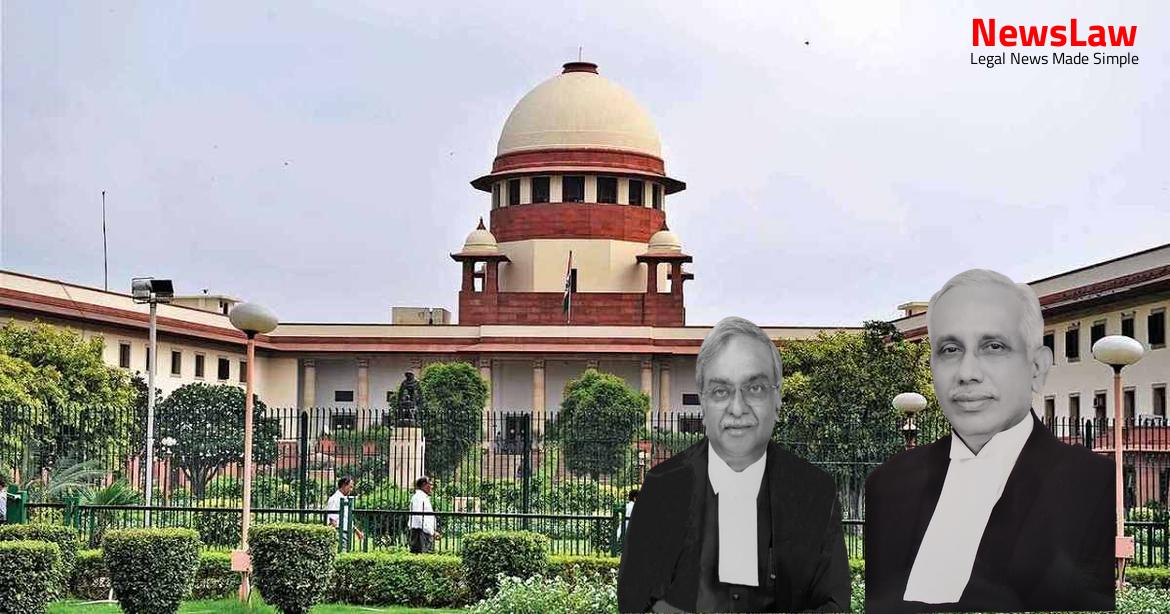Explore a recent court judgment focusing on the validity of government orders and the importance of adherence to constitutional procedures. The case highlights the meticulous legal analysis undertaken by the court in evaluating the revocation of significant government orders. Stay informed about the intricacies of executive actions and the standards set by the Constitution for official communications in the governance framework.
Facts
- The order dated 17.10.1977 of the Government of Madhya Pradesh, Forest Department was revoked by the Governor of Chhattisgarh.
- A Forest Guard named Shri Onkar Sinha was not sent for training as a Ranger, leading to a legal challenge.
- Consequential orders were issued on 14.12.2009 after the Forest Guard filed a writ petition.
- The Under Secretary of the Government of Chhattisgarh issued an order at variance with the decision taken at the highest level of the Government on 14.5.2009.
- The counter-affidavit of the State did not reference the recall of the order dated 14.5.2009 by the Secretary.
- The Forest Guard completed training as a Forester on 17.02.2014.
- The Sub-divisional Forest Officer challenged the order of the Secretary, Department of Forests dated 14.5.2009 in the counter affidavit.
- Ultimately, it was decided by the Under Secretary on 22.1.2013 that sending the appellants for training was not a contempt issue.
- The Division Bench set aside the judgment of the learned Single Judge.
- The State Respondent did not act fairly, reasonably, and responsibly.
- The strike was eventually called off because of assurances given by the Government.
Also Read: Legal Analysis of Assignment and Ratification in Property Law
Issue
- The key issue to consider is whether the State Government’s assurance to the Department of Forest employees, which led to the strike being called off, was genuine or a ploy to deceive the employees.
- There is a question regarding whether the order given by the Revenue Minister can be considered as an order of the State Government, specifically of the Governor.
Also Read: Interpretation of Custody in Contempt of Court Case
Arguments
- The petitioner argues that any attempt to draw support from circular 17.10.1977 in Chhattisgarh would be ultra vires and against statutory rules.
- The petitioner supports the appellants’ stand and highlights that the circular dated 17.10.1977 continued to be valid until revoked by the order dated 11.06.2012.
- The petitioner points out that the writ petition was not solely based on the withdrawal of the 17.10.1977 order but on its eclipse due to a later communication.
- It is argued that there is no merit in the claim that the 17.10.1977 order was ultra vires, as it was in line with the rules existing at that time.
- The petitioner emphasizes that under the rules, the Government had the authority to prescribe procedures different from existing rules.
- Consultations with the Union or government were held before making decisions to prevent strikes.
- Statutory rules were in place in the undivided State of Madhya Pradesh and new rules were enacted for Chhattisgarh.
- Decision-making involved considerations like promotion criteria and years of experience mandatory for certain positions.
- The order dated 11.06.2012 was deemed necessary to formally withdraw the circular of 17.10.1977.
Also Read: NGT Jurisdiction and High Courts’ Role
Analysis
- The judgment focuses on the validity of an order dated 14.5.2009 related to promotions and benefits for Forest Guards in Chhattisgarh.
- The communication in question was not an official order of the Governor and lacked formal expression in the Governor’s name as required by Article 166 of the Constitution.
- The State Government was contending that the previous order did not violate statutory rules and was in line with the established practices.
- The case also touches on the authentication of executive actions by the Governor and the need for official orders to be clearly expressed in the Governor’s name.
- The judgment examines the decision-making process and the significance of orders issued by the State Government in compliance with constitutional requirements.
- The Revenue Minister’s note in the Bachhittar Singh case is being considered for its effect on the decision-making process.
- State authorities should not fluctuate in their decisions based on convenience, seeking the court’s support when it was not given.
- The State authorities misinterpreted the order in Writ Petition (S) No. 45 of 2012.
- In State of Bihar v. Sunny Prakash case, the High Court directed the State Government to honor its commitment to the Bihar State University and College Employees Federation.
- The strike was called off after the State Government issued a letter for the implementation of the agreement.
- The Division Bench based its decision on a communication dated 14.05.2009, which was not even presented by the writ petitioners as a case of revocation.
- The reasoning used by the Division Bench is deemed unsustainable.
- The writ petitioners’ case was centered on the order dated 14.12.2009, which revoked the order dated 17.10.77.
- Emphasis is placed on the importance of proper pleadings in legal matters to ensure clarity and appropriate building of the case before the Court.
- The communication dated 14.12.2009 lacked characteristics of a Government Order which would have shown the revocation of the order dated 17.10.1977.
- The communication dated 11.06.2012 holds significance as it is explicitly issued in the name of the Governor.
Decision
- The appeals have been allowed
- The impugned judgments have been set aside
- No costs have been ordered
Case Title: OMKAR SINHA Vs. SAHADAT KHAN (2022 INSC 491)
Case Number: C.A. No.-003504-003504 / 2022



